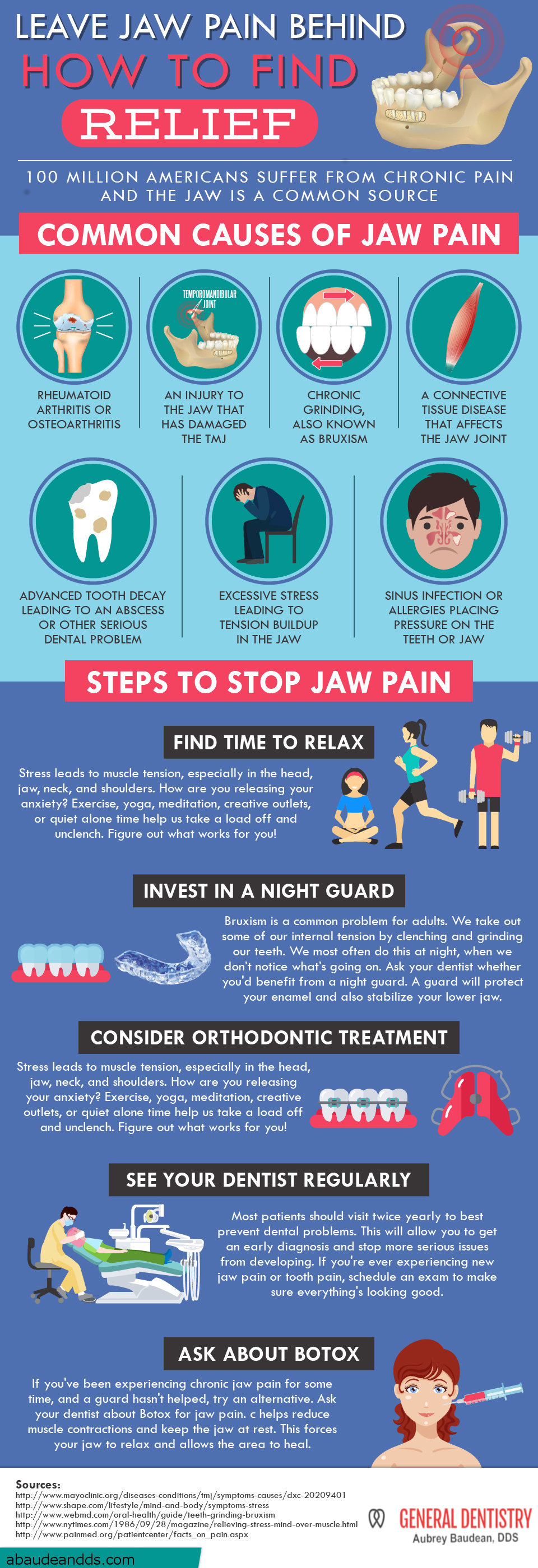What to Do if Your Dental Crown Fails
Many of us have dental crowns as they are one of the more common dental restorations done. Since their job is to protect your remaining tooth, they are made to...
We all clench our jaws from time to time. But there’s a big difference between occasional tension and nightly grinding. Unfortunately, many overstressed adults fall into the latter group. Bruxism is the ongoing habit of clenching and grinding teeth, usually at night while asleep. If grinding is allowed to continue, it can lead to the jaw joint becoming damaged (not to mention worn enamel, broken dental work and receding gums).
Why does grinding lead to jaw pain? It all comes down to the TMJ joint. This joint is where the upper and lower jaws meet, and where pressure can build when the jaw muscles are grinding through the night. The delicate components of the TMJ can become damaged and no longer function properly. This leads to the jaw feeling sore, tired, or puffy, and it can click when opened or lock so that the individual can no longer open their mouth fully.
Avoiding grinding is just one way to keep TMJ from taking hold. Check out our infographic below for other key steps toward jaw pain relief. If you thinking you may be grinding your teeth (more on how to tell below), schedule an appointment today for help.

There are a few ways to tell whether you might be clenching or grinding. Look for the following signs:
If you fall into one or more of these categories, just get in touch.